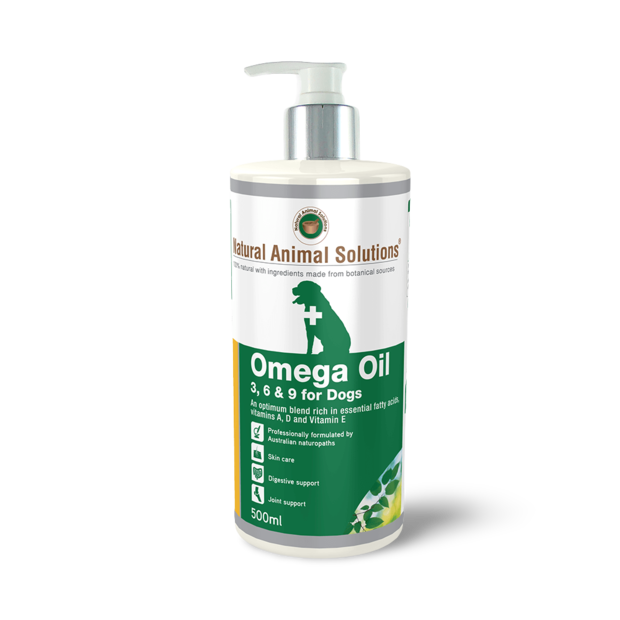Why Does My Dog Have Sensitive, Itchy Skin?
This article is written by Pet Circle veterinarian,
Scratch, scratch, scratch....lick, lick, lick... chew, chew, chew... Is your beloved dog excessively scratching and chewing themselves to bits, and you just can't figure out why?!?
Pinpointing the origin of your dog's sensitive or itchy skin can be an exhausting endeavour. Worse still, you might feel that you've finally found a cure for your dog's scratching, only to discover a new flare up for no obvious reason! Most of the time these symptoms arise from an allergy and a process of elimination is required to determine the cause of the irritant.
The Pet Circle Vets have outlined the common causes of itchy skin in dogs, how to help manage these issues at home and most importantly, when to see your veterinarian. Eliminate scratching in your dog, once and for all!
Contents
Common Causes Of Itchy Skin
1. Fleas
If your pet is suffering from itchy, flaky or sensitive skin, fleas may be the cause. If left untreated, flea infestations can result in flea dermatitis in the form of hair loss, inflammation and scabs on your dog's skin.
Thoroughly check your dog's fur, particularly around the rump area as fleas tend to thrive in this location. While you may not see the fleas themselves, look out for dirty black clumps or powder on your pooch's skin. This is called flea dirt, and it is essentially flea faeces, comprised of digested blood. (Gross!)
Not sure if it's regular dirt or flea dirt? Get a piece of white paper or a paper towel and place some of the dirt onto it. Add a small amount of water to the dirt- if it turns a reddish colour, this is flea faeces.
For more information, take a read through:
How to tell if a dog has fleas
What to do when your dog doesn't have fleas but won't stop scratching
Products such as Simparica Trio, Bravecto, Simparica, Seresto, Nexgard, Nexgard Spectra and Advantage are effective flea control options for treating and managing infestations. Treating for fleas is an important first step in investigating the cause of your dog's itchy skin.
Shop All Dog Flea Preventatives
2. Grass and Environmental Allergies

Like humans, dogs can experience allergy-like symptoms in springtime in response to grass and other pollens. In dogs, these allergies are called atopic dermatitis, or atopy. Symptoms commonly manifest as seasonal itching, biting or licking of the paws, and watery or goopy eyes (conjunctivitis).
Unfortunately, unlike keeping flea control up to date, avoiding pollen is not a feasible task. Unless your pooch is kept in a quarantine zone, pollen exposure is inevitable. If your dog is experiencing environmental allergies, you will need to visit a veterinarian for advice on oral or injectable medications, such as Apoquel to manage the symptoms.
Keep an eye out for any plants in your backyard that cause skin irritation when contacted by your dog. Poisonous plants such as Wandering Jew (Tradescantia) an introduced weed commonly found on the east coast of Australia, thrives in moist, shady areas and skin contact with pets can result in a nasty rash.
Learn more about what plants to look out for in your garden, by reading our veterinary written article: Warning! Toxic Plants: Is Your Pet Safe?
Feeding a diet high in the omega 3 & 6 fatty acids EPA and DHA can help to improve the skin's barrier function and reduce itching. Diets containing fish can be very beneficial as fish, especially salmon, contains high levels of omega 3 and 6 fatty acids to strengthen the skin barrier against allergens.
3. Food Allergies

A lot of the time, symptoms of food intolerance will manifest in itchy skin, rather than digestive upset.
A combination of 15 different studies from countries including Australia, United States and United Kingdom tested 278 dogs in total that suffered from food intolerances. The most common allergy was to beef, which affected 34% of the group and while dairy was the second most common affecting 20%.
If your pet's symptoms are caused by their diet, your vet may recommend an elimination diet trial. A food adverse reaction can be avoided in two ways, either by feeding:
1. Prescription diet containing a hydrolysed protein source: Hydrolysed protein is a protein source that has been been broken up into smaller pieces that cannot bind allergy receptors on your dog's immune cells.
2. Novel Protein: A novel protein is a type of protein that your dog has never been exposed to before, such as venison , duck or fish.
Did you know: Feeding your dog a Rotational Diet has been associated with a reduced risk of allergies. For more information, read our veterinary written article: Rotational Diets: The New Way To Feed Your Dog .
How To Support Your Dog's Skin and Coat At Home
A strong skin barrier means that your dog has a physical barrier to the cause of the allergy, while reducing the inflammatory response as the skin is thicker and healthier. Thankfully it is easy to help strengthen the skin barrier at home with some affordable over-the-counter products, and easy at-home changes.
1. Shampoo, Conditioner and Lotions

The source of sensitive skin may be related to a more local issue like a strongly perfumed shampoo. When using products on your pooch's skin or coat, never use human products. Only ever use those that are approved for canine use.
Some shampoos can provide relief from inflammation or help heal infection. Aloveen is an oatmeal based shampoo that is ideal for sensitive pets who suffer from dermatitis by providing gentle cleansing to remove dirt, chemicals and allergens from the skin. Use together with Aloveen conditioner to prolong the soothing effect and restore moisture to the skin.
Yeast or fungal infections will also cause symptoms which manifest through the skin and coat, such as itchy skin or inflammation. Malaseb medicated shampoo is an antifungal, antibacterial and anti-itch solution to not only alleviate discomfort but also helps treat yeast and fungus over growth on the skin.
High-quality soothing lotions such as Fuzzyard Balm, contain beneficial moisturising properties to help nourish your dog's inflamed skin. They can also help provide an extra 'barrier' layer on the skin surface, reducing the risk of some allergens penetrating through and causing a reaction.
Learn more about Choosing The Right Shampoo For Your Dog.
Shop All Dog Shampoo and Conditioner
2. Supplements

There are many skin supplements available to help support and strengthen your dog's skin. These can be either given in conjunction with a Skin Support Diet or added to your pet's current routine.
Omega Oils, whether these are topical or an oral supplement, are clinically proven to strengthen the skin barrier. A stronger barrier will quicken skin healing time, and reduce the likelihood that your dog will have a reaction.
Shop All Dog Skin Health Products
See Your Veterinarian

If your dog is scratching continuously or wounds are forming which do not heal, it is important for your dog to have a consult with your regular veterinarian. In some cases antibiotics may be required to treat skin infections or your veterinarian may prescribe medication to stop your pet's unpleasant itchiness and make them more comfortable.
Elimination diets, blood and intradermal tests can be performed by a veterinary dermatologist to pinpoint the cause of the allergy. Once the allergen is known then a treatment plan can be formulated to help eliminate the allergic response and itchiness.
While finding the cause of itchy or sensitive skin can be a time consuming endeavour, it is worth it to see your dog's tail wagging again. Keep your dog treated for fleas, consider a diet change, and remember to strengthen the skin barrier. Your dog will thank you!
Further Reading
Does Your Dog Have a Food Allergy
Want to know more? Check out our Discover Page for more tips from our expert Vets on keeping your pets happy and healthy.










































